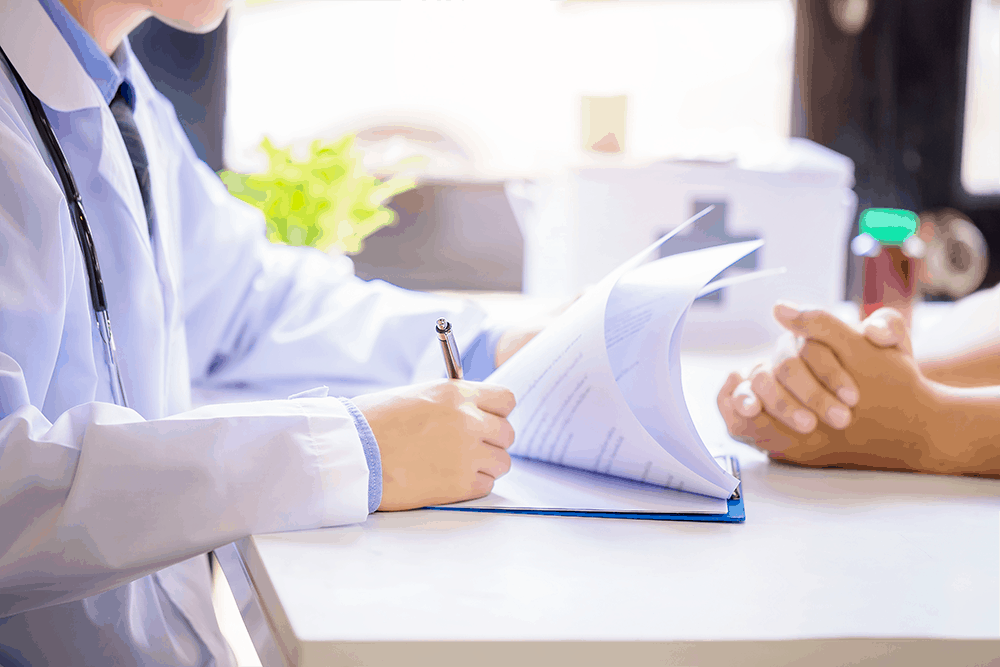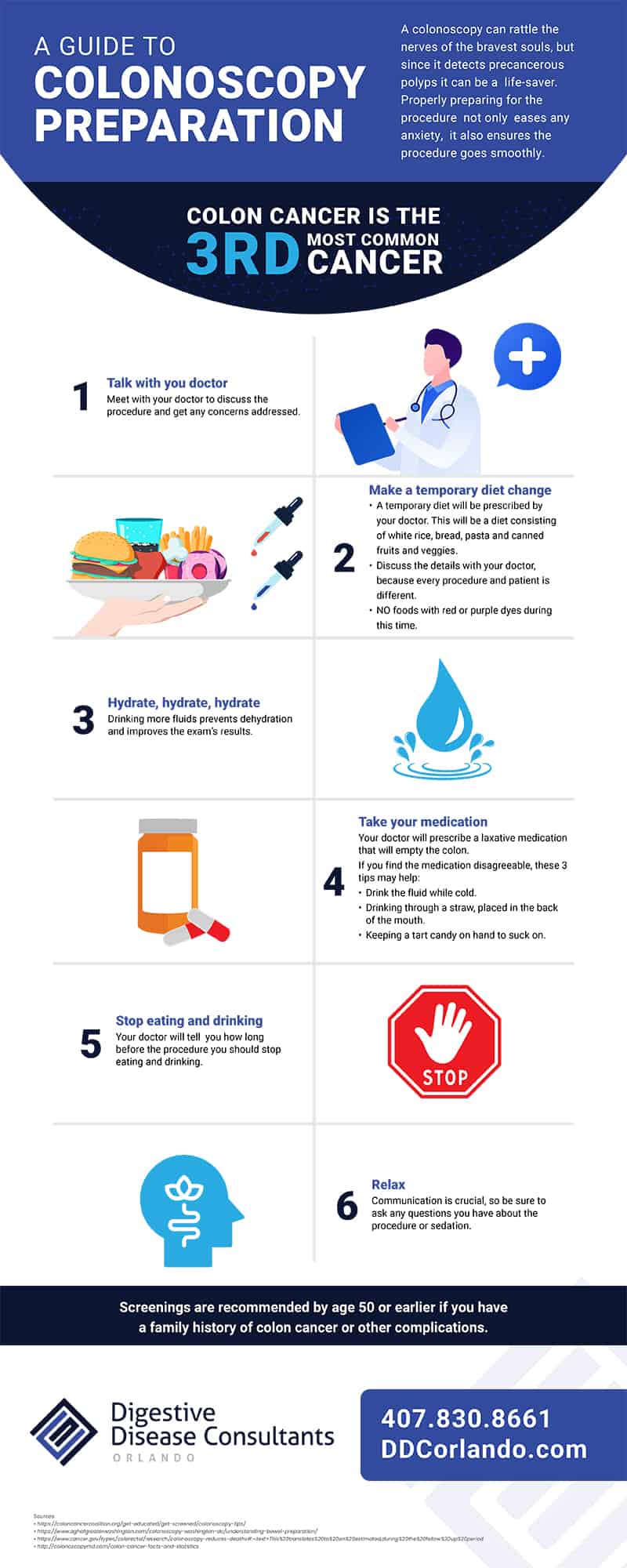 What Are the Steps for Bowel Prep?
What Are the Steps for Bowel Prep?- What Fluids Can I Drink Besides Water?
- Why Can’t I Have Foods With Red or Purple Dye?
- Do I Continue Taking My Current Medications?
- What Is the Bowel Prep Medication?
- What Do I Do if I Don’t Finish My Prep Medication?
- What Side Effects Should I Prepare For?
- Can I Drive Myself After My Appointment?
Proper bowel preparation is necessary before your colonoscopy to ensure that the colon is thoroughly clean. A clean colon allows the doctor to see any abnormalities, like a colon polyp, which is a small growth that could become cancerous. If the colon is not emptied, then the doctor could miss this during the procedure. Bowel prep involves an oral laxative medication, which may be a liquid or tablet and will help empty and clean your colon.
What Are the Steps for Bowel Prep?
Once meeting with your doctor, you will be prescribed the type of medication that is best for you. Your doctor will also give you any additional and specific instructions you may need. Generally, patients can expect to prep with the following:
- A change in diet that will be prescribed a day or two before your colonoscopy. This change will entail a limited diet of clear broths, teas, gelatin desserts, and drinks.
- Avoiding gelatin desserts and liquids with red or purple dye.
- Drinking more fluids than usual to avoid dehydration from the bowel prep medication.
- Your doctor will tell you when to stop eating and drinking before your procedure.
What Fluids Can I Drink Besides Water?
 You can drink most clear liquids besides just water, such as:
You can drink most clear liquids besides just water, such as:
- Ginger ale is often recommended.
- Other “clear” fruit juices are also allowed (clear fruit juice is one that you can see through, like apple juice).
- Coffee and tea are permitted, but no cream or dairy products are allowed during prep. Sugar and sugar substitutes are safe for your clear liquid diet.
Alcoholic beverages are not suggested during bowel prep, as these can cause dehydration.
Why Can’t I Have Foods With Red or Purple Dye?
Foods with red or purple dye, like jell-O, will stain the colon and can be mistaken for blood. To improve accuracy and any confusion during your exam, avoid these dyes in foods and liquids.
Do I Continue Taking My Current Medications?
You’ll discuss your current prescriptions when you meet with your doctor. Be sure to mention any aspirin products you take, or any other blood thinners (especially anything with warfarin and heparin). Most medications can be continued during the prep period, although some may interfere with prep or the exam. Your doctor will tell you what to do in this case.
What Is the Bowel Prep Medication?
Some bowel prep medication may come as a powder that you mix into water before use as an electrolyte oral solution. These are known as PEG-based products (polyethylene glycol) and must be prescribed. Patients with kidney, heart, or liver conditions are often prescribed this medication to avoid mineral or fluid changes and dehydration.
Another type of bowel prep medication is a tablet form of sodium phosphate.
Your medical conditions play the largest role in determining which medication is best for you. Communicate with your doctor if you are pregnant or breastfeeding, have a history of bowel obstruction, or high blood pressure. Any current or past diseases relating to the heart, kidney, or liver should also be disclosed.
What Do I Do if I Don’t Finish My Prep Medication?
Call your doctor if you forget to take the medication when prescribed or do not finish the bowel prep as advised.
What Side Effects Should I Prepare For?
Side effects and their severity vary patient to patient and depending on the product used. Some side effects experienced have been nausea, vomiting, bloating in the abdomen, or abdominal pain. In rare instances, kidney failure, heart failure or seizures have occured. When meeting with your doctor, they will explain possible side effects of your prescribed prep.
What if I Feel Nauseous Because of the Medication?
You may take a short break from the prep medication. Drink ginger ale or another clear liquid. Sucking on a hard candy can also help settle your stomach. Once your nausea ceases, continue with the medication to ensure you finish it all in time for your exam.
Can I Drive Myself After My Appointment?
No. Due to the sedation used during the procedure, you are legally impaired after the procedure and will experience delayed judgment and reflexes. You may drive again a full 24 hours after your procedure. Until then, have a trusted person accompany you to your appointment or pick you up to drive you home afterwards (this also helps ease your nerves if someone else is present).

